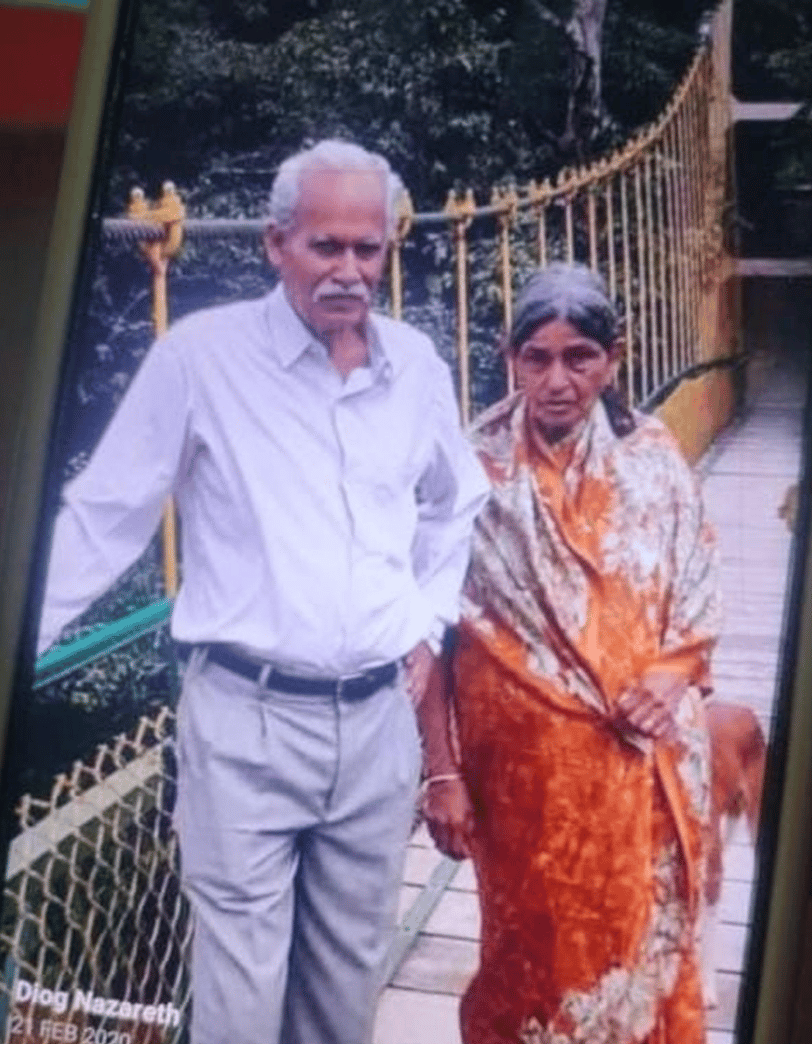Cyber Scams in Karnataka: Who is Leaking Your Information to Criminals?
This blog delves into the alarming rise of cyber scams in Karnataka, where victims—ranging from elderly couples to professionals—are being extorted under the guise of "digital arrests." It questions how cybercriminals gain access to personal and financial data, pointing to possible leaks from banks, telecom providers, and e-commerce platforms. The piece also critiques the glorification of hacking in the tech industry and holds companies accountable for failing to protect user data. Ultimately, it asks a crucial question: What is the point of being cautious if data leaks are happening from within these organizations?
DEATHNEGLIGENCECORPORATE GOVERNANCE
Roshan Yacob George C|CISO CISSP CISA CFE
4/1/20253 min read


Diego Nazareth, 83, and his wife Flaviana Nazareth, 79, who were found dead in Beedi village in Belagavi district on March 28, 2025. The couple had no immediate family. Their far relatives were present during the final rites at the Christian cemetery in Beedi on Friday (March 28) night. | Photo Credit: Special Arrangement at (The Hindu)
Cybercrime in Karnataka is no longer an isolated problem—it is a full-blown crisis. With victims losing crores of rupees to well-coordinated scams, one must ask: How do cybercriminals get access to their victims’ personal details? Who is leaking this information—the phone companies, banks, or popular e-commerce platforms? More importantly, why aren’t these leaks being investigated?
Belagavi Elderly Couple: Driven to Death by Cybercriminals
The most heartbreaking case involves 83-year-old Diego Nazareth and his 79-year-old wife, Flaviana Nazareth from Belagavi. After months of relentless extortion, the couple took their own lives—victims of a scam that should never have been possible.
What the Death Note Said
Nazareth’s suicide note revealed the horrifying details of the scam. A man calling himself Anil Yadav, claiming to be from the Mumbai cyber crime branch, told Nazareth that his SIM card had been used for an international crime. Later, a woman named Seema Bisra, allegedly from the telecom cyber cell, informed him that there was a digital arrest warrant against his name.
Terrified, Nazareth pledged gold at a local bank to raise money for the criminals. Over 150 days, he reportedly paid between ₹5-6 lakh, desperate to avoid arrest.
This raises urgent questions:
How did scammers know that Nazareth had gold to pledge?
Who leaked his financial standing, age and address?
Why was he targeted over a SIM card issue—was his telecom provider responsible?
Other Victims of Cybersecurity Scams
Software Engineer and Wife Lose ₹4.77 Lakh
A Bengaluru-based software engineer and his wife fell victim to a fake digital arrest, losing ₹4.77 lakh over two weeks.
The scammers had detailed personal information, making their threats seem real. Did their bank, employer, or telecom provider leak their data?
Karkala Resident Loses ₹8 Lakh
A Karkala resident was coerced into transferring ₹8 lakh under threat of arrest. How did the criminals know he had that much money?
Bengaluru Employee Loses ₹5.4 Lakh
A private firm employee lost ₹5.4 lakh in a similar scam. The criminals knew he had access to such funds. Was it leaked from his bank or payment platform?
77-Year-Old Bengaluru Woman Scammed of ₹1.2 Crore
A 77-year-old woman lost ₹1.2 crore. The fraudsters knew exactly how much she could afford to pay. Was her bank balance leaked? Did her online shopping history reveal her financial status?
Bookstore Owner in Puttur Loses ₹56 Lakh
A bookstore owner in Puttur was tricked into transferring ₹5.6 lakh in an online fraud.
How did the criminals know that a small business owner had access to this much money? Was his data leaked from a banking, e-commerce, or telecom platform?
How Are Cybercriminals Getting Victims’ Personal and Financial Information?
These scams rely on insider knowledge. The criminals know their targets’ financial status, transaction history, age, address, phone numbers and even their fears. The question is:
Who is Leaking the Data?
Banks and Payment Platforms – Are banks failing to protect customer data? Are insider employees selling financial details?
Telecom Providers – If cybercriminals claim SIM cards were used in a crime, is customer data being leaked from telecom companies?
E-commerce and Digital Wallets – Many victims shop online. Are fraudsters buying customer data from these platforms?
Data Breaches and Dark Web Leaks – Cybercriminals buy personal data from previous hacks. Are companies failing to secure user data?
This isn’t just about fraud—it’s about corporate negligence. If companies are leaking personal data, why aren’t they being investigated?
Gone Are the Days of Teenagers Hacking for Fun
There was a time when hackers were teenagers trying to prove their skills or getting a dopamine rush. Those days are over. Hacking is now an industry, and victims are paying with their lives.
Yet, some in the tech industry glorify hacking. A CTO of a prominent unicorn start-up proudly calls himself a "Hacker-at-heart" on social media. Enough of this. Hacking isn’t a game when it leads to the deaths of innocent people.
Who Is Truly Responsible for Their Deaths?
Who is to blame for the tragic deaths of Diego and Flaviana Nazareth in a village near Belgavi?
The cybercriminals who extorted them?
The companies that leaked their financial data?
The banks and telecom providers that failed to protect them? OR
The CTOs who glorify hackers and celebrate a culture that indirectly fuels cybercrime?
Until we hold these entities accountable, cybercrime will continue to claim more victims.
References:
